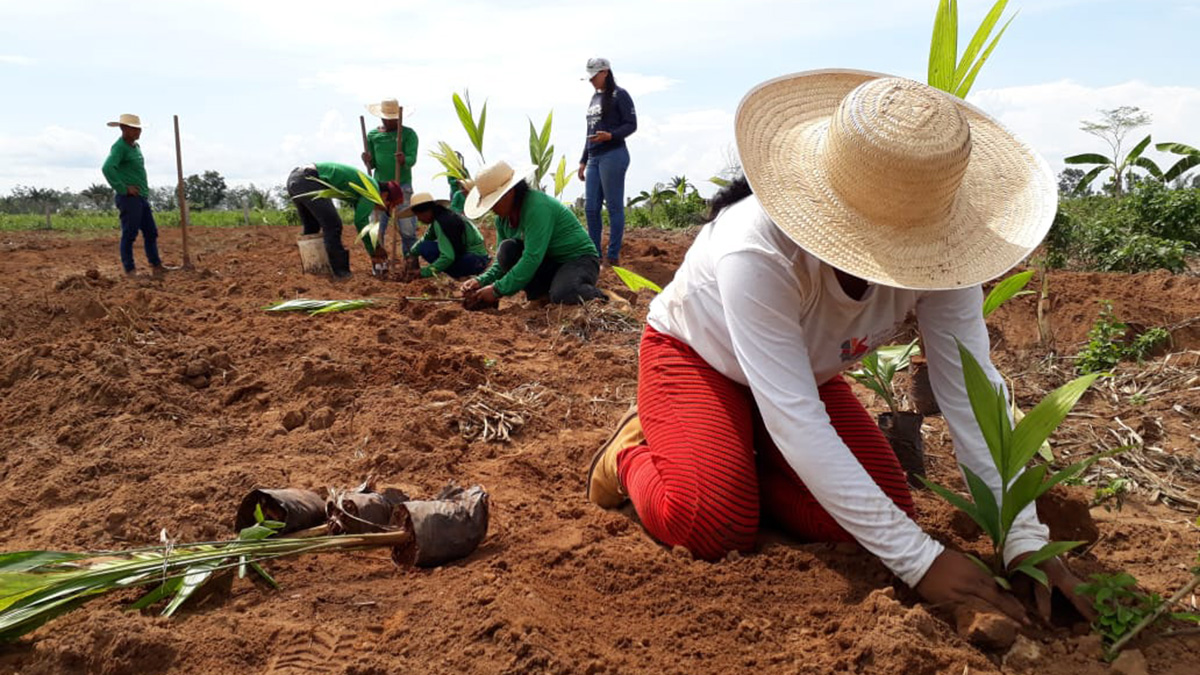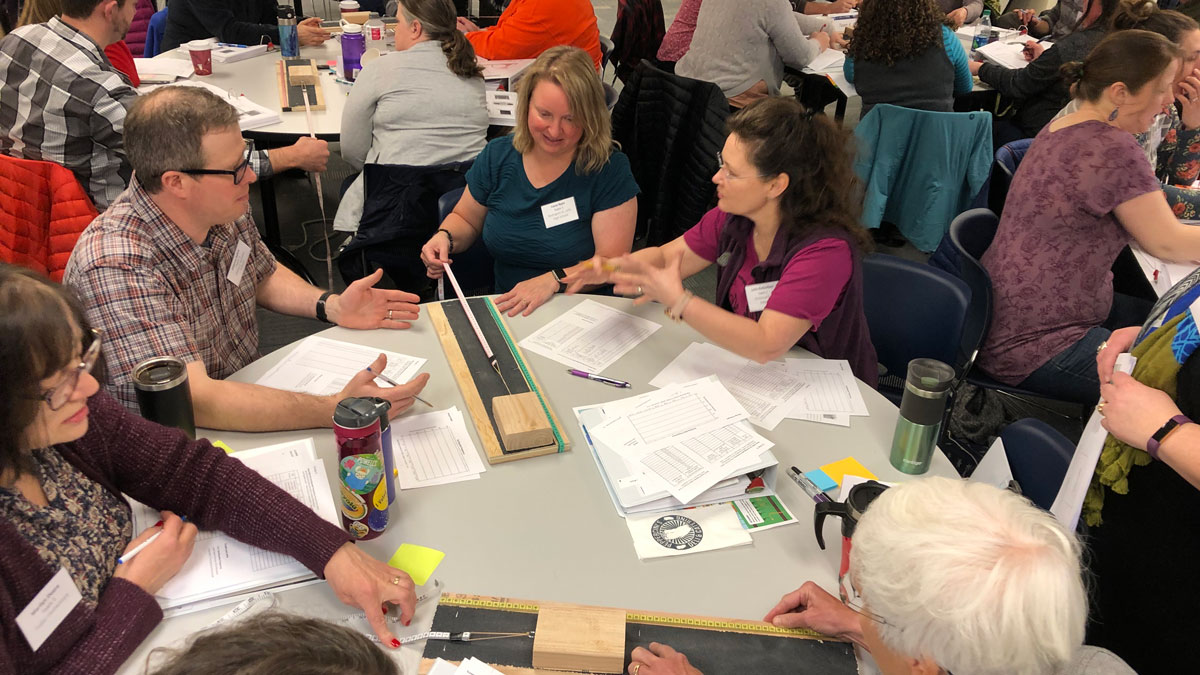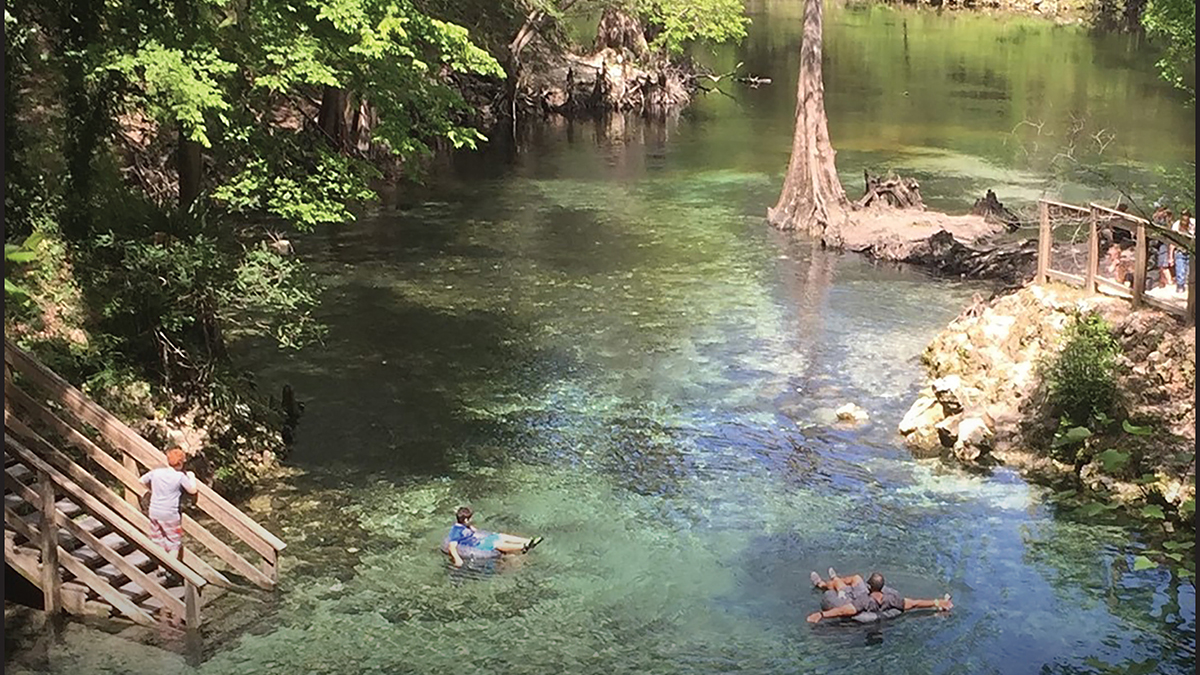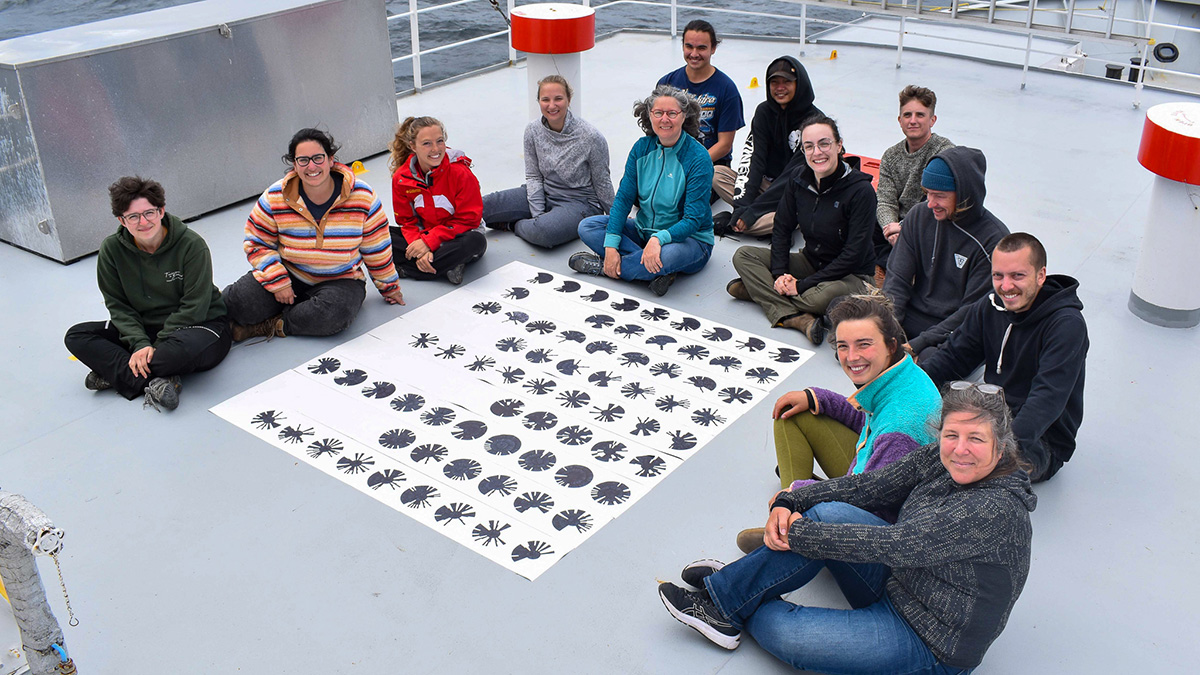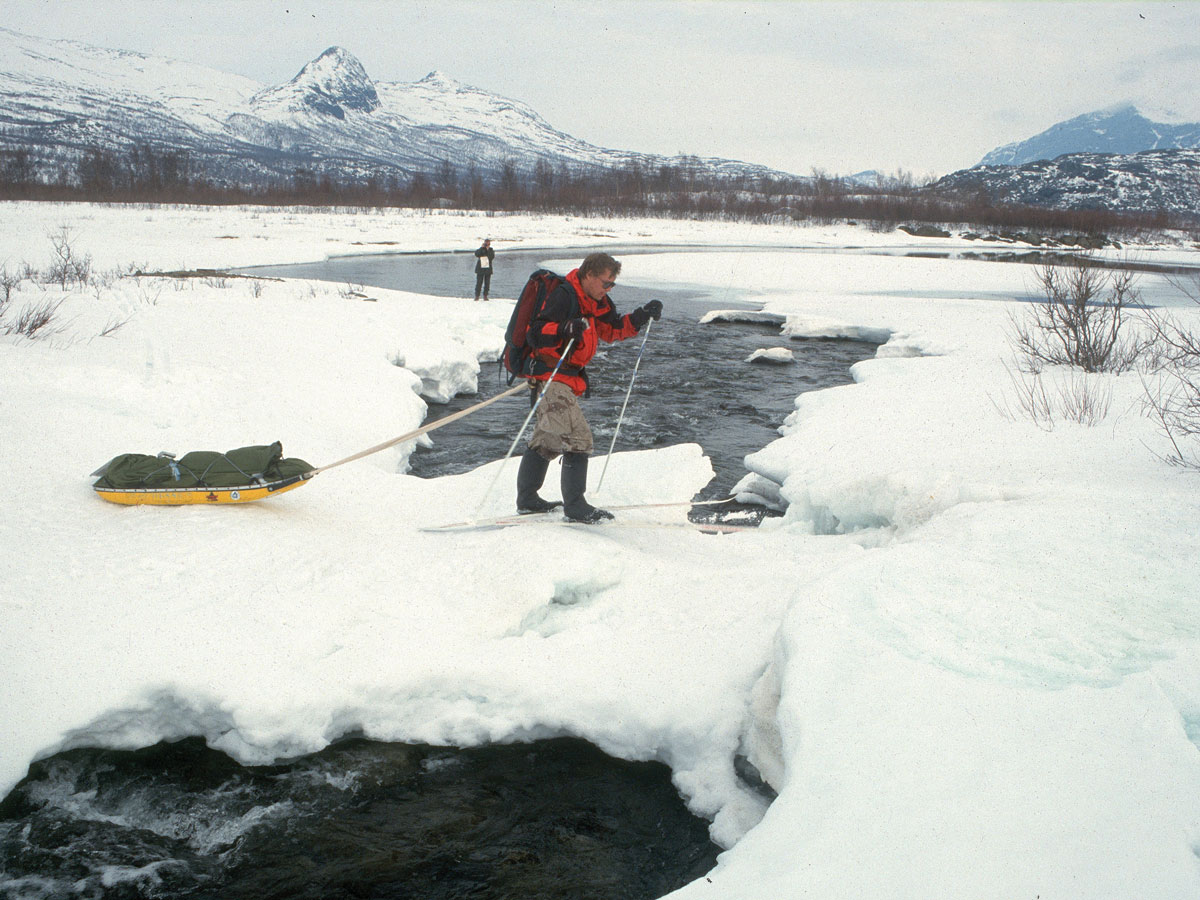Deposits from the 1257 Samalas eruption may contain artifacts of an ancient kingdom, according to scientists who link volcanology studies with histories written onto palm leaves.
Indigenous Peoples & Traditional Knowledges
El conocimiento tradicional es esencial para la sustentabilidad en el Amazonas
Durante la COP26, el Panel Científico por la Amazonia enfatiza la necesidad del conocimiento indígena y local para orientar las recomendaciones científicas y políticas.
Geohazard Education Trainings Foster Resilience in Rural Alaska
National Science Foundation-funded teacher and community workshops boost disaster preparedness optimism among coastal Alaskan educators, whose communities face an array of natural hazards.
The Importance of Springs and Why Humanity Needs to Protect Them
A new book explores why springs are critical for humanity and ecosystems, the threats they are facing, and how we can act now to protect and restore them.
How Climate Change Is Affecting Women in the Amazon
Droughts and floods have radically altered family farming, but women leaders are finding solutions for themselves and their communities.
An Inclusive Approach to Oceangoing Research
The bread and butter of oceanography, sea voyages rarely include minoritized communities and nonscientists. The Inclusion Mission wants to change that.
Building Resilience in the Face of a Dwindling Colorado River
Policymakers, industry and conservation professionals, and tribal members explore pathways to a sustainable future for the millions of people reliant on the “lifeblood of the American West.”
La minería amenaza a las poblaciones Indígenas aisladas del Amazonas
Un proyecto de ley en el Congreso Brasileño permitiría la expansión minera en territorios Indígenas. Una nueva investigación demuestra cómo esto podría afectar radicalmente a los pueblos aislados.
Maui Endures More Drought and Drier Streams
Drought continues to threaten Maui’s native land-based and marine ecosystems, water resources, and traditional ways of life. But conservationists have hope—and ways to fight back.
Tero Mustonen: Disrupting the Status Quo
Advocating for the importance of Traditional Knowledges in Finland and beyond.


